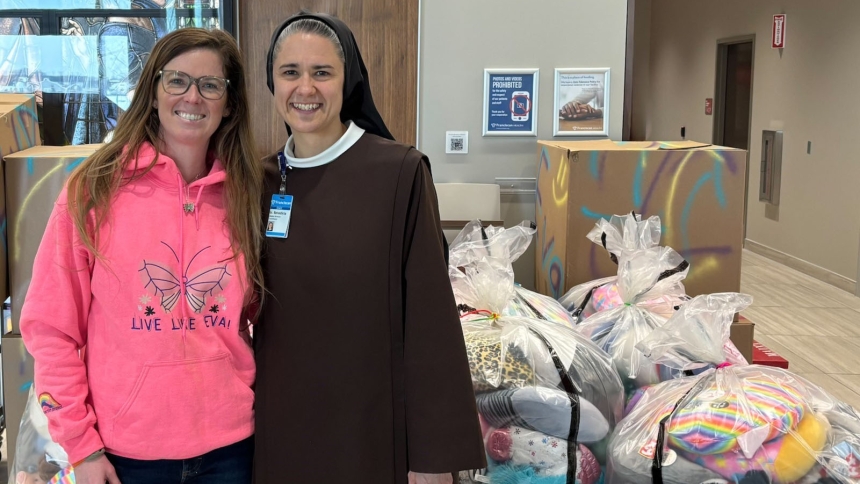
As published in the Northwest Indiana Catholic on May 22, 2016
The third area of Church mission discussed in my pastoral letter is discipleship/formation. This key component of ecclesial life expresses the essence of Jesus’ Great Commission given right before he ascended to heaven. “Go make disciples of all nations!”
As beloved children of God, baptized into the mystery of Christ and his Church, each of us is called to grow as a disciple of the Lord, rooted in prayer, nourished in the sacraments, immersed in the Scriptures, active in our faith community, serving the poor and marginalized, and in all of that, forming other disciples.
Disciples make other disciples. That’s what we do because we cannot keep the Good News of Jesus Christ crucified and risen to ourselves.
As we know with anything, discipleship does not automatically happen. We can’t just plop people in a church pew, give them the sacraments, have them do a service project or two, drop them off at religious education and assume they will develop a deep relationship with Christ and the Church. This formation into discipleship requires a fully engaged community: parents and families who practice their faith, high quality religious formation experiences which form both the head and the heart, and teachers and catechists who are serious Christian disciples themselves.
In other words, we need to build a Catholic culture on which our young people naturally fall in love with God, develop a profound spiritual life, understand and articulate their faith and take their rightful place in the Mystical Body of Christ.
The biggest challenge to forming young Catholics is forming their parents. It stands to reason that if a father and mother practice the faith themselves, participate in the sacraments and the parish and build their marriage and family around Jesus Christ, their children have a far higher chance of embracing and living the faith themselves. I applaud the many parents who heroically live their faith, seeking to pass it on to their children and sacrificing much to give them a solid Catholic upbringing. They are the generous hearts who keep the Church alive.
We also know that some parents send their children to Catholic schools and religious education programs, but do not go to Mass themselves, know little about the faith and never speak of God at home. Too often, our children get the mixed message that Church and faith are supposedly important, but in the actuality of daily life, not as significant as sports, leisure time, sleeping in on Sundays or just about anything else. We need to creatively and effectively reach those parents who are not yet engaged.
Another consistent need for the Church is the formation of Catholic school teachers and catechists. If we seek to form our young people as Christian disciples, fully alive in the Lord, then those who are privileged to serve as their Catholic faith mentors must be disciples themselves. I am deeply grateful for the remarkable servants who generously serve in our schools and formation programs, teaching about the love and mystery of God, the centrality of Christ and the goodness, truth and beauty of our faith. Theirs is a noble and challenging task!
Through ongoing study, prayer and formation, our teachers and catechists need to grow in their own discipleship if they hope to pass the faith onto their students. A Catholic mentor who does not faithfully participate in the Eucharist, reconciliation, daily prayer and the general life of the Church will only be a weak trumpet.
Before the Second Vatican Council, most young Catholics memorized the Baltimore Catechism and were able to give back answers to basic questions about the faith. There was little emphasis given to spirituality, prayer and the need to develop a loving relationship with Jesus Christ. Formation was very much about the head rather than the heart.
In the years after the council, the pendulum swung the other way. Content became less important than experience. I remember making a lot of collages and banners in grade school. The focus was much more on love than it was on truth. Today, we are trying to strike the right balance, knowing that faith formation impacts all aspects of our lives, that we need both content and context, that a living and loving relationship with God is key but we also want our young people to know the basics of their faith. We want more knowledge of the Scriptures and the saints. We want to help our youth to experience God and act out in their experience the life of the Gospel.
These reflections all lead to a very central point - the importance of adult formation. Our young people will catch the faith if they see us adults fully engaged and alive in the beauty of the Church; if we are serious about our discipleship; if Mass, prayer and service in the community are truly at the center of our lives.
When I was a parish priest, I was always passionate about adult formation, offering series on the Scriptures, prayer, the sacraments, the saints, social teaching and Church history. Our Catholic faith is so rich and deep, so true and beautiful, that only God could have created it all! We will never grasp it all in our lifetime, but what a joyous adventure to drink in as much as we can!
+ Donald J. Hying



